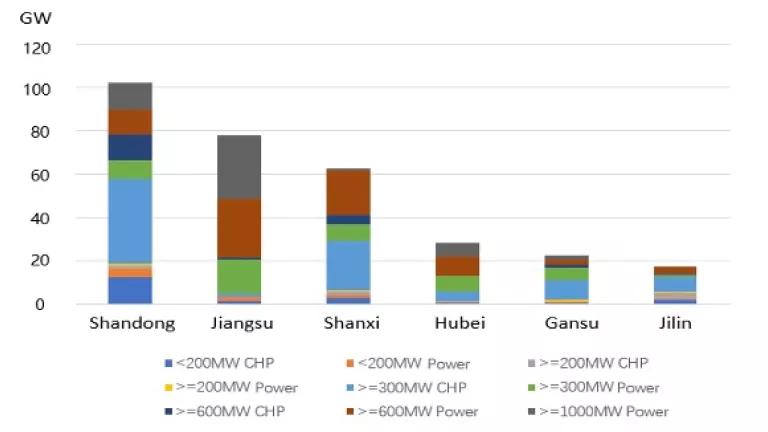China Commits to Strictly Control and Phase Down Coal
At the Leaders’ Summit on Climate, President Xi reiterated China’s commitment to climate action, including by strengthening its efforts to cap and bring down its coal consumption and to transition decisively from coal.
At the Leaders’ Summit on Climate, President Xi reiterated China’s commitment to climate action, including its commitment to peaking its carbon emissions before 2030. In particular, he stated that: “China will strictly control coal-fired power generation projects, and strictly limit the increase in coal consumption over the 14th Five-Year Plan period and phase it down in the 15th Five-Year Plan period.” This suggests that China will be strengthening its efforts to cap and bring down its coal consumption and to transition decisively from coal.
While China has been focusing on reducing the relative share of coal in its energy consumption in the last five years, a figure which fell from 64% in 2015 to 57% in 2020, its absolute coal consumption has been on the rise since 2017 as its total energy consumption has continued to grow. President Xi’s remarks were the first time that China has set forth more concrete targets for capping and reducing its absolute coal consumption at the international level, and will help China to achieve its goal of peaking its carbon emissions before 2030 given that coal is the largest source of its carbon emissions.
President Xi also noted that China is currently developing a carbon peaking action plan, and that it will support early peaking by regions, sectors and enterprises with the conditions to do so. And he emphasized the importance of ensuring a just transition so that the transition to green globally benefits the whole of society. Successfully capping and transitioning from coal is at the heart of all of these efforts.
President Xi’s remarks follow on the US-China joint statement on the climate crisis issued just days earlier after the meetings between Special Envoys John Kerry and Xie Zhenhua, which likewise emphasized the importance of both countries pursuing “concrete actions in the 2020s to reduce emissions” in line with the Paris Agreement’s 2°C and 1.5°C goals, and “near-term policies and measures, including with respect to reducing emissions from coal, oil, and gas.”
In addition, President Xi reiterated that China will accept the Kigali Amendment to the Montreal Protocol to phase down the use of the super greenhouse gases called HFCs used in air conditioning, strengthen its control of other non-CO2 greenhouse gases such as methane and begin trading in the national carbon trading market.
What to look for later this year in China’s climate actions
With China’s enhanced 2030 and 2060 climate targets, international statements at the Leaders’ Summit and in the US-China joint statement on the climate crisis, and domestic policy announcements including the recent March meeting of the Central Financial and Economic Affairs Commission, China’s leaders are sending a clear signal that China’s shift from fossil fuels to clean energy is accelerating and that “new energy” should be the basis for China’s future energy system, rather than fossil fuels.
The 14th Five Year Plans for Energy and Electricity Development coming out later this year as well as the carbon peaking action plan can make these goals even more specific by setting clear goals to further reduce the share of coal in China’s energy consumption to less than 50% by 2025 (ideally closer to 48% or below), and ending approvals for new coal plants and limiting total coal power capacity to no more than 1150 GW by 2025 (compared to industry suggested targets of 1250 to 1300 GW), while shifting coal power to play a supplementary role to new energy. These targets, combined with a renewed focus on energy efficiency to curb energy consumption growth, would help China to achieve its goal to phase down coal consumption in the 15th Five Year Plan and reach peak carbon emissions as soon as possible before 2030, while shifting its economy to a green, high-quality growth pathway.




